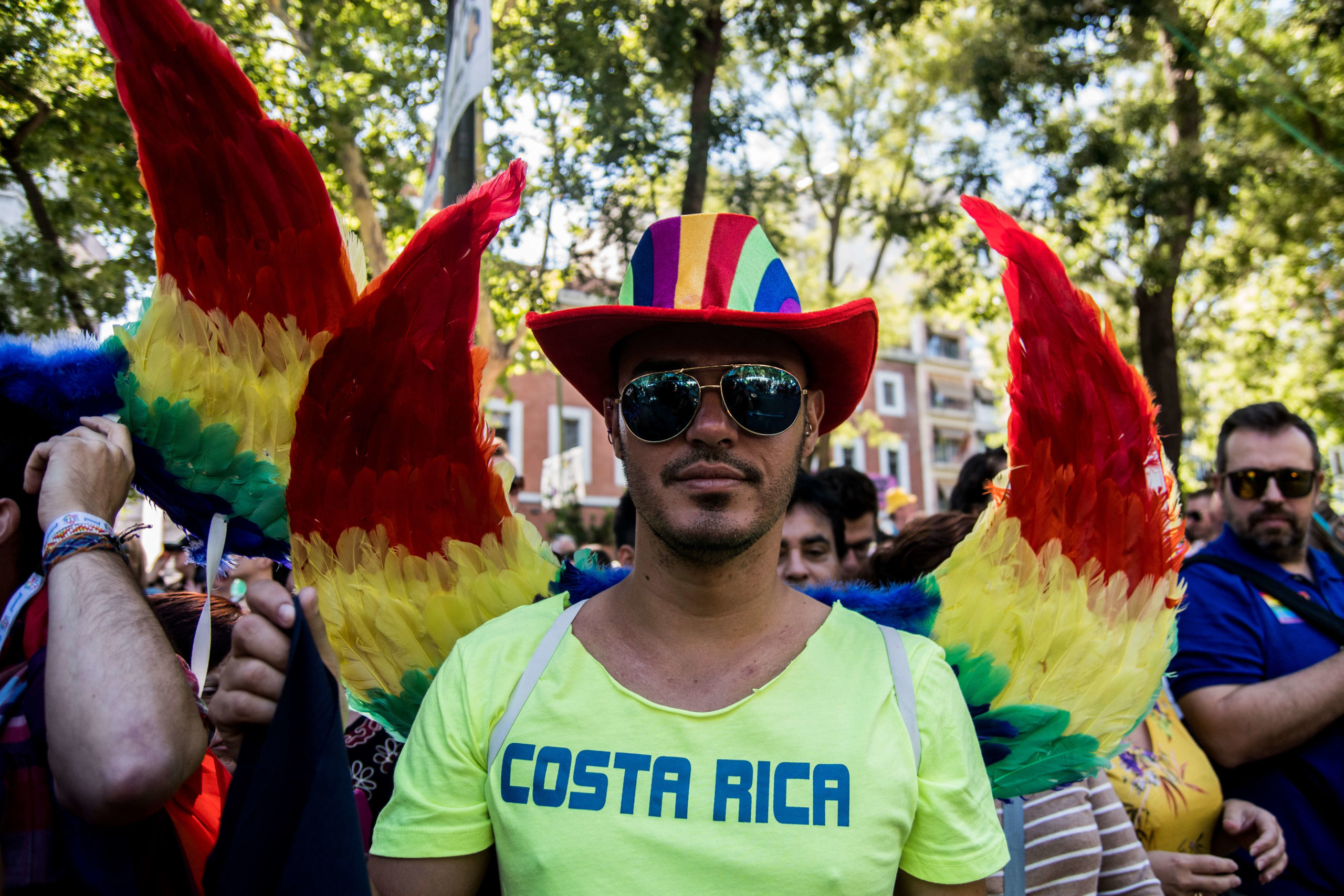WorldPride 2017. (Marcos del Mazo/LightRocket via Getty)
Equal marriage has finally been legalised in Costa Rica, with the first-ever same-sex marriage registrations to be processed at the end of this month.
According to Q Costa Rica, the country’s Civil Registry will begin processing the registrations on May 26.
Official Luis Guillermo Chinchilla told the publication that everything had been prepared, and said: “The Civil Registry has made significant efforts in adjusting all the computer systems in civil registry matters, with the purpose of managing these registrations in a timely and expeditious manner, always within the framework of suitable and effective registry security as usual by our institution.”
In August, 2018, the country’s Supreme Court finally ruled that it was unconstitutional to ban same-sex couples from getting married, and set a time limit of 18 months for the legislature to implement changes through law, but the Central American country’s LGBT+ community has been fighting for marriage equality for a long time.
In 2016, then-president Luis Guillermo Solis promised to expand LGBT+ rights in Costa Rica and called for the Inter-American Court of Human Rights to rule that human rights laws require the implementation of same-sex marriage, which it did.
Costa Rica’s 2017-18 presidential election was dominated by the issue of LGBT+ rights in the wake of the ruling.
Fringe evangelical presidential candidate Fabricio Alvarado Muñoz emerged from sixth place to become the frontrunner on the back of an aggressive anti-gay marriage campaign and a pledge to withdraw from human rights courts.
The centrist candidate Carlos Alvarado Quesada eventually saw off the anti-gay challenger in a run-off vote.
Speaking at The Economist‘s Pride and Prejudice conference in May, 2018, former Costa Rican vice president Ana Helena Chacón Echeverría said the divisions had been “hell”.
The politician said: “The country split in half. This was the issue. We weren’t talking about taxes or infrastructure or poverty, they were talking about gay rights, yes or no?
“It was like a referendum on gay rights. We went through torture during those months because, for the first time in my country, gay people were feeling fear. It was hateful.”
